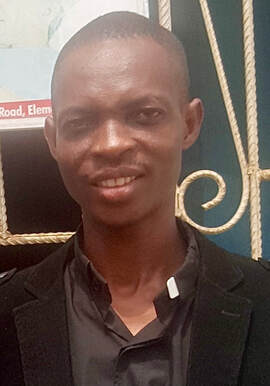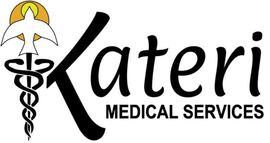|
This story illustrates the terrible choices that poor people are forced to make regarding healthcare. These are the people Kateri Medical Services’ partner clinics serve. People who cannot afford lifesaving medical care. In many cases, they simply die quietly and painfully at home. These are the people whose lives are saved by your generous donations. It was about 6:00 am, Monday, 6th of June, 2022. I had just concluded my prayers. The annual Kateri Medical outreach in partnership with FaithCare International had just ended the Friday before. Revelling in the euphoria of the success of the outreach, I sat on my bed and I was lost in thoughts. I heard my phone beeping. It was Madam Grace Ollor, one of the matrons in the General Hospital, Eleme. "Sorry to bother you, sir. I know you ought to be resting now after the rigors of the past week," she said. "We have an emergency and there is no doctor on ground. A gravida 3 para 2 woman was just brought in from a traditional birth attendant (TBA) with shoulder dystocia. The head is already out but the other part of the fetus is stuck in for over five hours. Can we send her over?" "I am around. Let them come over." I responded. Some minutes later, Khalid, our security man opened the gates and a vehicle brought them into the facility. The woman was too weak to step out of the car. The husband and the nurses had to carry her into the building and placed her on the couch of the consulting room. "Doctor, please help me," she passionately pleaded for her life. Her husband said he heard that we are doing a free medical outreach from the General Hospital and that the matron directed them. "The outreach ended last Friday and the doctors have since returned to their base,” I said. “However, let's see what we can do to help." He broke down in tears and started weeping. "Doctor, please save my wife. I only have N30,000 [$72 US] at home. I am a keke (tricycle taxi driver) and I don't have money. My wife was billed for CS (cesarean section) last Friday and I couldn't afford it. The ultrasound scan shows that the baby was big and she may not be able to deliver normally by herself. That was why she went to my pastor's wife for delivery (referring to the TBA). Now the baby has refused to come out. She has been in labor since Saturday night and the head of the baby has been out since 2:00 am.” Ms. Inem, our staff who was standing by, got angry with the man for jeopardizing the life of his wife and the baby and said, "If this woman dies due to your carelessness, won't you pay heavily to get them buried? Why do men behave this way?" "Nurse, let him be. It is because he doesn't have money," I said to calm the situation. "Things like this happen to indigent people. No financially buoyant person will leave his wife like this." "Doctor, please help me," the woman kept crying while lying helplessly on the couch in my office. On examination, she looked pale, the pulse was 124 bpm, fast and thready, with blood pressure of 100/60mmHg. It was obvious that she was in shock, probably due to hypovolemia, a sudden blood loss into the abdomen as it was bulging. Initially, I was thinking that she probably had fibroids which prevented her from having adequate contractions, thus leading to the delay in expulsion of the fetus. So I did a scan which showed a protruding portion of the amniotic sac with myometrial defect and intraperitoneal fetal parts. There was extrauterine hematoma. Right there and then, I knew there was a uterine tear. “Madam, did they give you hot injection (our colloquial word for oxytocin or ergot injection) or massage your abdomen because the scan shows that your womb has torn?” She just nodded and fell unconscious. I had to rush her into the theater, took samples for urgent PCV, grouping and cross matching of about 3 units of blood and commenced the surgery immediately with my assistant transfusing her. We had to decapitate the dead fetus and extract the remaining body from the abdomen to fully comprehend the extent of the damage to the uterus. There was a tear in the anterior part of the uterus extending to the lower uterine segment. Luckily, there was no damage to the bladder. We placed her on a urinary catheter to prevent VVF (vesicovaginal fistula). We wrapped up after about two and a half hours and wheeled her into the recovery room. I walked back to the reception area and informed the man and his pastor who accompanied him. The wide grin on his face literally became contagious as everyone around began a wild jubilation. If not for the support rendered to St. Thomas Clinic, we couldn't have attempted the help rendered Mrs. Chineye Akpoke. Two things would likely have happened to her on that fateful day. First, the husband would have paid through the nose to get the surgery done. If he couldn’t pay, Mrs. Akpoke probably would have died while she was being carried around looking for a kind-hearted doctor or hospital to help her out. “A big thank you to donors and partners of Kateri Medical Services. Your involvement is saving lives beyond what you could ever think or imagine.” - Rev. Dr. Olaobaju Olaniyi
0 Comments
Leave a Reply. |
NewsCategories
All
Archives
December 2023
|
|
|
|
© 2024 Kateri Clinic. All rights reserved.
Webdesign by PluginMatter.
Webdesign by PluginMatter.



 RSS Feed
RSS Feed


